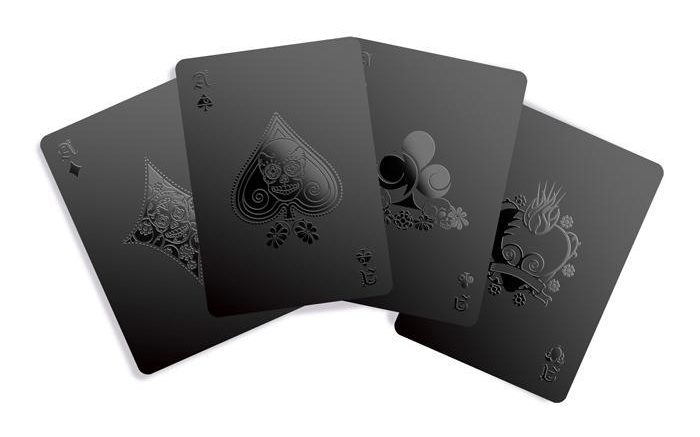Last week, it was that time of the year again when the card packs were all out and the Diwali parties were in full swing with the fun of gambling and competition rolled in. From teen patti to poker, the games were on and the stakes were high!
Have you played a card game? Have you had the sheer thrill of playing your wits against or with destiny and luck and weighing your scales against coincidences and permutations and combinations?
It’s a great balance of what comes your way with what you do with it and every card game has it’s take-away when it comes to life and leadership lessons and adapting these to work to your advantage.
I am terrible with math and for a long time I lived in the bubble of thinking that card games meant a hold on math was essential to play, let alone win… So, I was reluctant to play or gamble. Then, I was introduced to chess and card games almost at the same time and I got to the latter quicker than I did the former and this preference was here to stay.
In this week’s edition of Forward Leap, let me try and focus on what these games have taught me over the years.
Teen Patti, Rummy and Poker:
Flush, flash or teen patti is a quick game of a three card draw per player and the best hand wins…
Rummy is the 13 card game and I always wondered how it got the unlucky 13 to be at its core… It’s about the multiple stacks of combinations you build with what you have and how you pair them and lose the least value in each round
Poker and the popular Texas-hold-em that we play, is the two card deal with rounds of betting, leading on to the best hand in combination with the open cards on the table that wins in a combination of 5 cards, two in hand and the rest laying open…
Try and relate what I have tried to articulate as lessons in the card games to instances in life… In my experience, these translate into intense insights for the kind of journeys of life and leadership and how we choose to identify with them.
What these cards taught me and the inferences you make from them for life and leadership:
- What comes to you in the form of the cards you are dealt, you have no control over them, and this is true for all these games…
- Patience to play your hand is crucial, a bit too much of confidence to bet a lot more or too little to bet none and fold can decide your overall winning or losing
- Confidence should be underplayed in these games as anything that seems too cocky gets a lot of attention and you get people playing with you to get conscious and aware of their strategy and trying to get to know yours to defeat you
- You cannot cheat in a game of cards simply because it’s too much work to try and do so versus taking the right path towards a win or a loss and accepting it graciously
- No risk is worth ignoring and no opponent is unworthy of being destroyed. In a fair game, you risk it to lose it or win it
- A lot of it has to do with luck and destiny
- What you choose to do with what has been dealt is your choice and here destiny takes a back seat and you decide what is going to work best for you overall
- It’s always about friendly competition and the thrill of winning must be authentic throughout the process without any misnomers or deviants
- Remember poker face? Try to understand the ones at the table and try to build your own as its not always amazing to investigate ourselves in that entirety.
- The cues are all non-verbal mostly and it pays to be an ardent observer and soak as much as you can in and this relates to also listening skills which will aid conversations around the table
- You become more acutely aware of the emotional quotient you possess as you progress and will find that it helps to be able to communicate and internalise what is happening around you
- These games are also a great lesson in profit and loss and learning about cutting down losses for business
- Assessment of where you are can determine your future… From knowing when you have a weak hand to dealing with the failure and crafting success with it are skills that come in handy
- The most important thing is knowing when to give up and let go and walk away from a game which will define your progress as a player and associated wins and losses.
- Apart from keeping the brain active and making it immune in some form to brain degenerate activity, its also what makes you a better observer, a better decision maker with more confidence and skill to handle all outcomes…
These were my observations, tell me what yours are and your interaction with the game of cards so far…



Be the first to comment on "Pack It! Dealing with what’s been dealt"